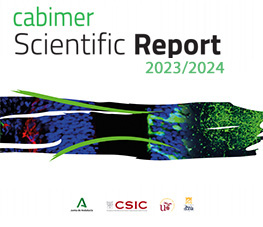Selected Publications
Surv Ophthalmol Pharmacological agents for treatment of proliferative vitreoretinopathy: A systematic review and network meta-analysis.
Science advances HMCES corrupts replication fork stability during base excision repair in homologous recombination-deficient cells.
Proc Natl Acad Sci U S A Patulin and Xestoquinol are inhibitors of DNA topoisomerase 1.
Staff

Tatiana García Muse
DNA damage response during meiosis
Genomic DNA is under constant attack from both endogenous and exogenous DNA damaging agents. Without proper repair the resulting DNA damages would lead to alteration of genomic structure thus affecting the faithful transmission of genetic information. In addition, defects during meiosis lead to aneuploidy, an extreme kind of genetic instability associated with fertility problems, miscarriages and mental retardation syndromes. I use the Caenorhabditis elegans model organism to address the impact of DNA damage on genome stability in meiotic cells.
Seminars
The schedule of Cabimer's 2026-2027 seminars will be published in September, but you can see here the list of this year's seminars.










